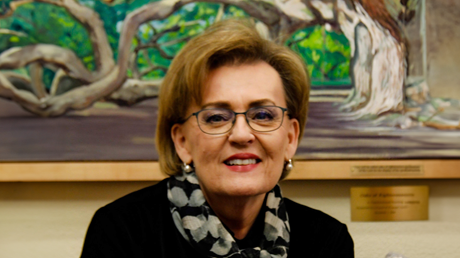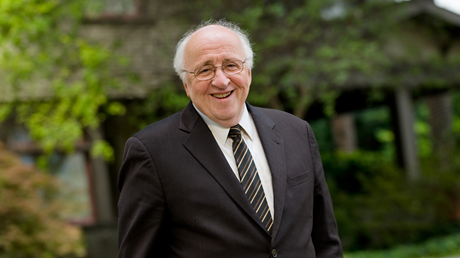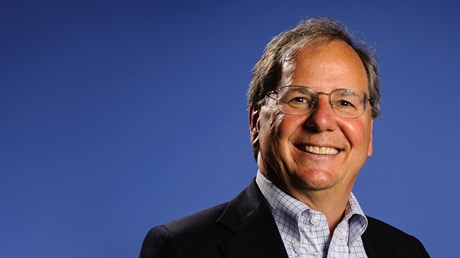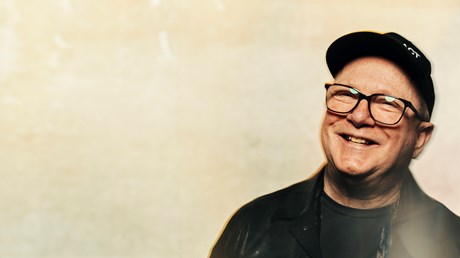Will you help encourage and connect the church?
Give NowWill you help encourage and connect the church?
Give NowAs a new believer seeking what it meant to be a Christian, I was given a clear message: be meek, mild, peacekeeping, and quiet. Further, I learned I was supposed to submit, turn the other cheek, and freely give up my rights. (I remember someone even quoting Philippians 2:5-8). The problem is that my personality is radically different from this picture. I worried whether I could live up to this standard.
Fortunately, I later had mentors that gave me a fuller picture of the Christian life—people who spoke up for the voiceless, ran for public office to bring about justice, and chose to go without so that others could have what they need. I've listened to humble Christians speak against complacency in the church. I've supported successful business endeavors led by Christian CEOs. They are humble people living boldly for God. Even more, I've read for myself countless stories that show just how powerful Jesus is—even if he lived in humble circumstances.
I began to wonder if powerlessness and humility truly were synonymous. So I was more than a little intrigued when I heard about Playing God: Redeeming the Gift of Power, the newest book from Andy Crouch, executive editor of Christianity Today magazine. In it, Crouch seeks to show readers that power is actually a gift from God and something that all Christians must learn to steward. I was fortunate to ask Crouch a few questions about the book.
What does it mean to be executive editor of Christianity Today?
Crouch: I lead the CT editorial team along with editor Mark Galli. CT has a long history of shared leadership over its magazines and ministry, and this is another example—Mark and I bring wonderfully different gifts and perspectives, and we are really enjoying working together.
What prompted you to write this book?
I felt like there were very few healthy conversations about power happening among my fellow Christians, especially those, like me, from the dominant or majority culture. Indeed, there were not many conversations about power at all—a lot about subsets of power like "leadership," but not many about the broader, more difficult topic of power.
And the conversations I heard often were tinged with a sense that power is pretty much a problem, something to be discarded and avoided as much as possible. That seemed to me to be unrealistic. Power, the ability to make something of the world, is a quality of all living things, and it's certainly a quality the Bible ascribes to God's people in both the Old and New Testaments. And that suspicious posture seemed likely to lead not to fruitful sharing of power, but to unintentional hypocrisy: concealing from ourselves and others how much power we actually have. If you believe that power is basically bad, then the best amount of power to have is none. You are not likely to see yourself as a steward of a good gift, and you also become even more likely to be tempted to unconsciously misuse and abuse the power you don't want to admit you have.
Why is it so important that Christians see power as a gift from God—something that's good?
I think the most important reason is that while the Bible is scathingly honest about the way human beings can abuse power, the deeper biblical theme is that power leads to flourishing. The Bible's creation story, rather than being rooted in conflict and violence like most of the dominant Ancient Near Eastern creation narratives, is rooted in the ideas of goodness, abundance, and image-bearing. And the final vision of the Bible, in Revelation 21, is about creative power, but also about recreating and reconciling power—the power to make all things new, and the astonishing invitation for us to be part of that redeemed, new earth.
If we see power as a gift from God, I think we will have deeper resources to understand how we can use whatever power we've been given in a fruitful way. We also become accountable for our power in a deeper way. In the book, I talk quite a bit about the ways we distort the gift of power, and all of them come down to substituting something or someone for God, and distancing ourselves from God and from true, fruitful relationships with God's image-bearers, especially the most vulnerable. If we see power as negative (not a gift at all) or as neutral (something that doesn't matter very much), we are missing our call to use our power for others' flourishing.
Why do you think so many Christians seem to believe that to be Christian is to be powerless? What's the harm in this?
We often hear that Jesus gave up power, and in many ways this is absolutely true—the Incarnation was a stunning self-limiting on the part of the eternal Son of God, and it went all the way, as Paul says in Philippians 2, to the point of death on the cross. Death is the end of all power, and the Son who is in very nature God emptied himself of all power on the Cross. That is a central part of the Christian story.
But while the whole gospel revolves around that moment of utter surrender and trust at the Cross, the New Testament writers also go to great lengths to emphasize Jesus' power in his teaching and healing, and the way he conferred that power upon his disciples both before and after his death and resurrection. And the resurrection, of course, is a breaking in of creative power like the world had not seen since the first moment of creation, and maybe even not then. The resurrection of Jesus from the dead has had more profound cultural effects, for longer, among more people, than anything else in history. That is power!
So I think the harm in only speaking of powerlessness as the Christian calling is that it does not take a lot of the New Testament seriously. For example, the part where Jesus gives his disciples authority to preach the gospel, heal the sick, and drive out demons. There is no doubt that we are called to exercise our power in a different way from the world (Matthew 20:25-26). But I see very little in the New Testament that implies that Christians should be powerless in a categorical sense. Instead, we are called back to the deep, true power that comes from bearing the true image of God in a world full of idols and injustice.
You write in your book that many asked you to use a less unsettling word than power. Why did you choose to use the word power in your book?
I wanted to wrestle with the whole subject, not just the easy parts. It's much easier to talk about "authority" or "influence" or "leadership." All those sound more benign and easily understood as something good. But there are a couple of problems with focusing only on those aspects of power. First, there are all sorts of power that don't come from exercising authority, influence, or leadership: The power of being physically attractive. The power of inherited wealth. The power of being born with a certain passport or speaking a certain language. The power, in a culture that reveres elders, of being old. The power, in a culture (like ours) that reveres youth, of being young. None of these really come from any kind of leadership, but they are all forms of power for better and for worse.
The other reason is that we all want to believe we are using our power well. But the Christian view of the world suggests that it is exactly when we think we are doing well that we are most at risk of playing God in the worst way. I not only wanted to write about the real gift of power, but the real dangers of power, which I summarize in the book as idolatry and injustice. And the truth is that authority, influence, and leadership, which all sound pretty benign and beneficial, can end up underwriting terrible idolatry and injustice. The best word for the whole beautiful, complicated, dangerous subject is power.
What is your hope for Christians as they begin to better understand power?
I hope they will become accountable to one another, to God, and to the most vulnerable around them for how they use their power. The test of power is flourishing: Who is flourishing because I have power? In a way, as executive editor of CT, it would have been much easier for me if I hadn't written this book because this book raises difficult questions for my leadership: Are my colleagues flourishing more than they would have if I didn't have this role? Are our readers and customers flourishing because of my power? Are the last and least flourishing? Those are tough and scary questions. But they are exactly the questions we should be asking ourselves.
I also hope that we will start recognizing the power we have that doesn't come with such an obvious title as I have had for the past year at CT. A great deal of harm is done by people who possess unconscious power—in the book I especially talk about privilege and status—and thus go through the world unaware of the way they are perpetuating idolatry and injustice. And a great deal of good can be done by people who realize that, in Christ, they have access to the power of the Holy Spirit no matter what their earthly status or title may be. The gospel is good news for the poor—for those who believe they can't bear the image of God. There is so much more flourishing that can happen when each of us take up our image-bearing role in whatever places and institutions we find ourselves.
In the introduction of your book, you write that you are not a philosopher or a scholar, but a journalist. How did your role as journalist help you write this book?
It took me many, many years to realize that I really am not, in any serious way, an academic kind of thinker. I rarely have a new idea, and certainly not many of the ideas in this book are new—I got them from theologians like John Milbank and Oliver O'Donovan, and from practitioners and teachers like Jayakumar Christian and Leanne Payne. But what I am able to do, as a journalist, is synthesize others' ideas and insights in a way that is memorable, and illustrate them with stories and illustrations from the life we all share. I love finding ways to make very abstract things concrete—at least a little more concrete. But the great fun of writing it was coming up with engaging, journalistic, and I hope also poetic and beautiful ways of expressing some ideas that I have found to be tremendously exciting, liberating, and indeed empowering. That is part of the journalist's calling: to make complicated things clear, quickly, and to keep readers reading.
Andy Crouch's new book, Playing God: Redeeming the Gift of Power, is now available. He is also the author of Culture Making: Recovering Our Creative Calling.
Amy Jackson is managing editor of SmallGroups.com.







